The importance of shopping independently
Growth of local and ethical shopping
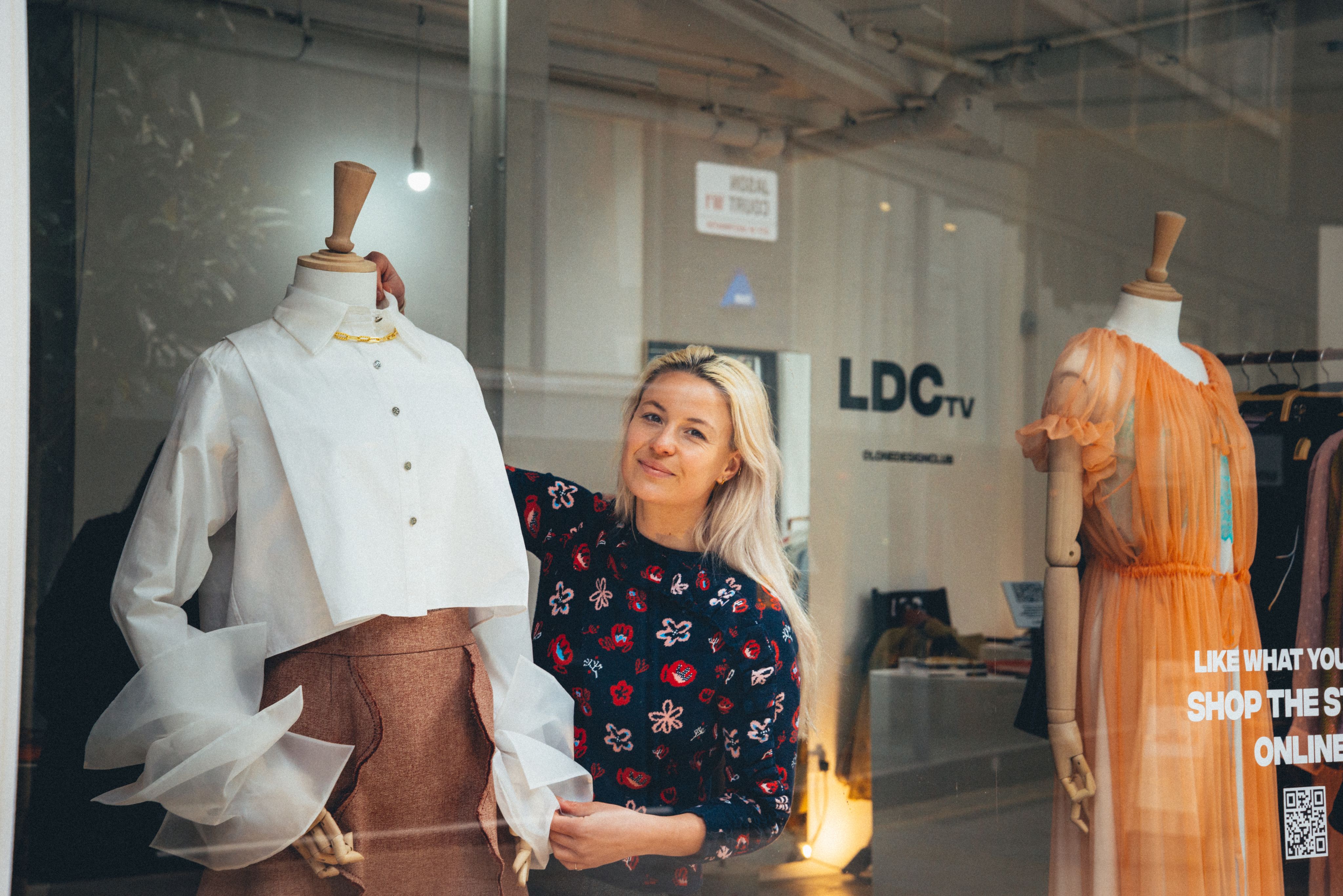
Throughout Covid people began to change their mindset towards shopping independently and shy away from the huge brands and massive multinational businesses that dominate our world.
Independent shopping not only supports the local economy but offers retailers the chance to champion someone's livelihood rather than a big corporation and experience the uniqueness of their products that cannot be found anywhere else.
In 2021 independent shops in the UK saw a record first rise in their numbers in four years according to the Guardian. During the pandemic the government urged shoppers to 'shop local' to support small businesses in engaging with local customers.
Rebecca Morter, CEO and founder of retail start - up Lone Design Club said: "There has been a huge amount of support through Covid and people have started to change their mindset.
"People are starting to consider how much an item should really cost, what's appropriate, who is actually being paid and making a profit from this.
"Regardless of the size, do we want to see our high streets completely obliterated or do we want that little coffee shop or little boutique to stay.
"If we don’t go and support these local brands we will lose the creativity of the future which a lot of younger designers are really pushing forward.
"I think that people are realising that we need to put our hands in our pockets if we want these independent businesses to survive."
Lone Design Club:
Rebecca launched her own brand at London fashion week in 2015 and found that customers were wanting to go directly to brands whilst selling to stores was becoming harder because of slim margins, small brands are charged a lot extra than established brands.
Consequently, Rebecca sought to create a platform that disrupted the wholesale model.
Lone Design Club (LDC) support independent and sustainable brands by connecting them directly to their customers to build trust and form long lasting relationships.
LDC are the only channel retailer for the sustainable fashion sector, they work with over 400 brands across the world who focus on sustainability.
Rebecca said: "Without unique and unusual designs we would lose the individualism of being our own people.
"With independent shops you get something that no one else really has, a lot of customers come to us because they do not want to look like a Topshop window or a mannequin.
"They want something unique and different that has a story behind it and you cannot get that from the high street or fast fashion.
"We're an e-commerce platform that’s seriously powered by physical retail.
"Community lead curated pop up stores create a buzz, hype and excitement about physical retail space.
"We use these pop up stores as a way for customers to see, touch, feel and increase their relationships with independent brands which is absolutely pivotal."
Rebecca discusses how independent shops help people be expressive.
LDC have hosted over 50 pop up stores allowing customers to meet the designers behind the brands, and change the high street to better service retailers and local brands.
Rebecca expressed that reaching customers online is great however, it is becoming extremely saturated but if independent brands have the ability to harness the power of physical retail and online together it can amplify their growth.
Rebecca said: "When you go to a smaller brand there will be a story whether it’s the materials, the metals used in the jewellery may be recycled, or their vintage sourced gem stones.
"There is an increased awareness about how much these fast fashion brands earn compared to the people who are being completely exploited in the factories.
"Whereas, shopping independently may mean you may pay a bit more for better quality but you know that people within the supply chain get paid fairly and that is what we should be promoting."
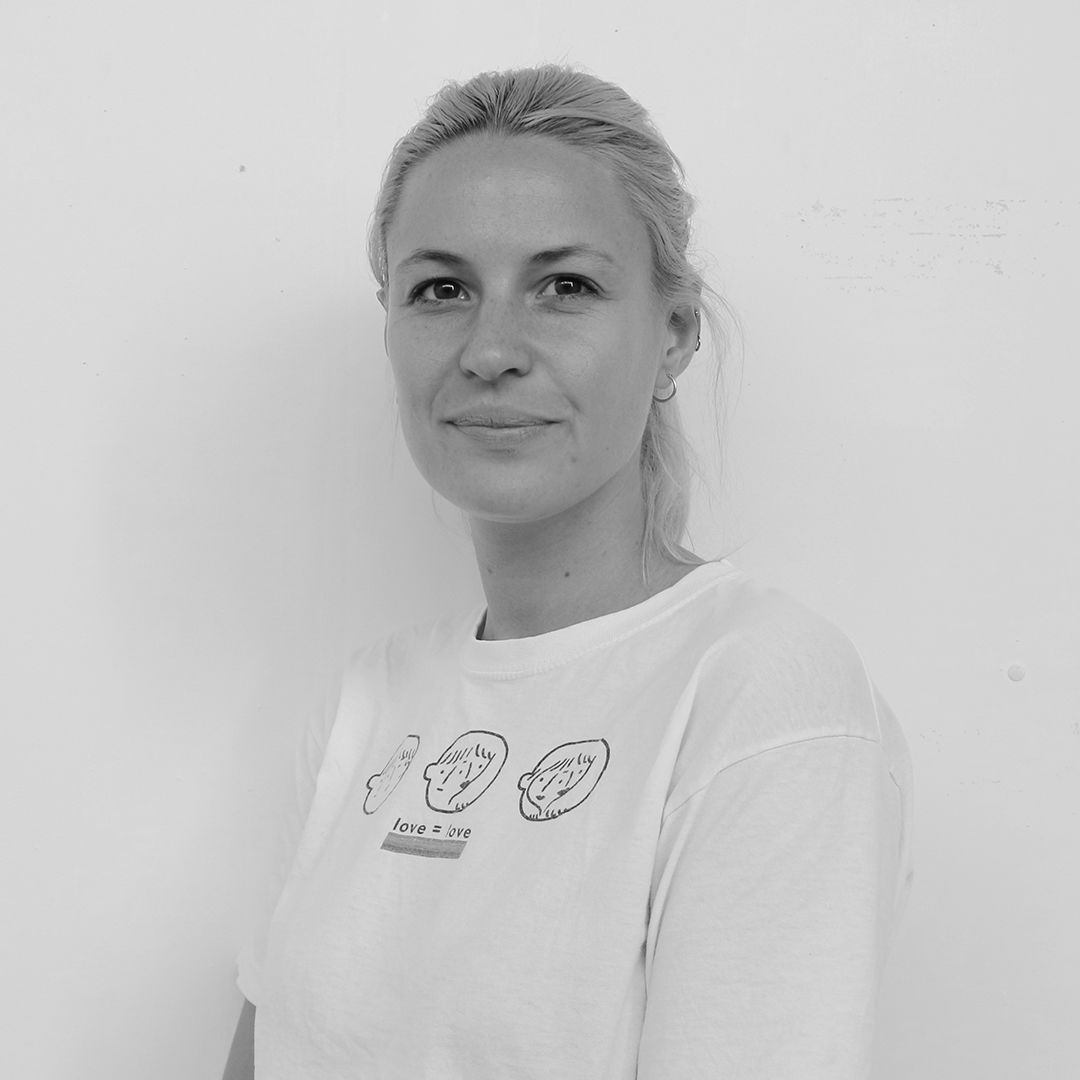
REBECCA AND LDC: Were named as one of the Forbes 30 Under 30 and Drapers 30 under 30.
REBECCA AND LDC: Were named as one of the Forbes 30 Under 30 and Drapers 30 under 30.
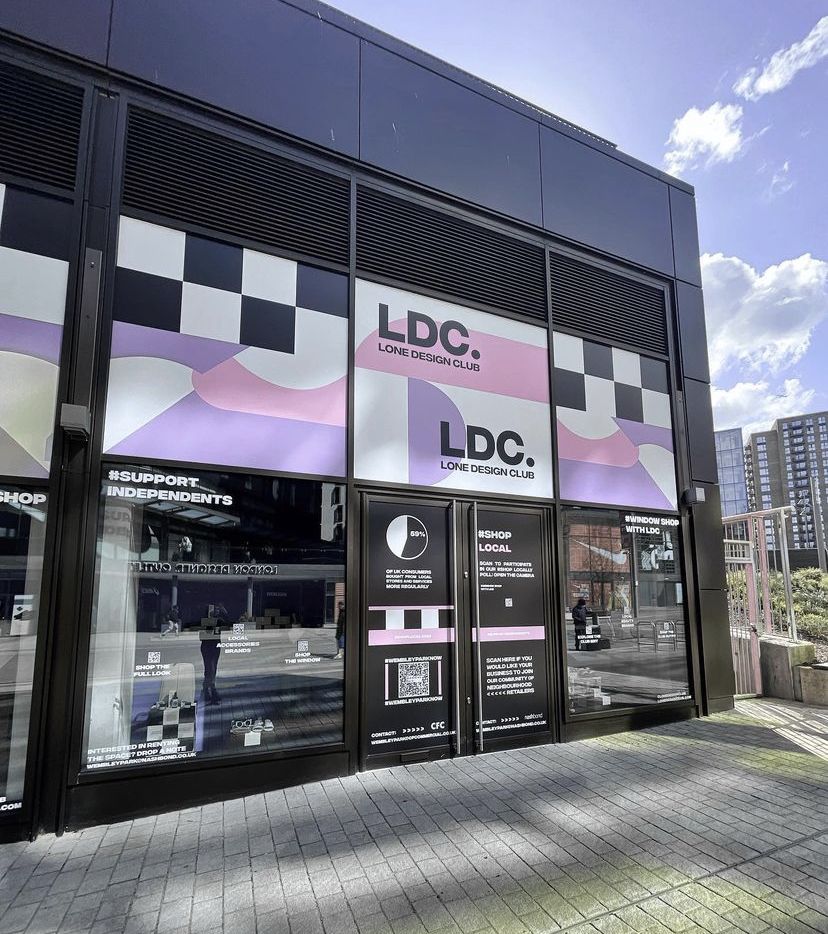
POP UP STORES: Offer a curated selection of sustainable, independent brands.
POP UP STORES: Offer a curated selection of sustainable, independent brands.
Good Wine Shop:
The Good Wine Shop who are independently owned have been in South West London for 18 years and have grown to have shops in Chiswick, Kew, Richmond Hill and Teddington.
As an independent merchant they focus on family producers who create artisan and unique wines on much smaller production levels rather than large branded wines.
The business recycles the money that is spent in their shops back out to their community by hiring local people and using nearby suppliers such as Teddington cheeses.
Owner Mark Wrigglesworth said: "I think local businesses have a real connection with the community and the customers they serve.
"People come into our shops on a regular basis and we know them, their kids, their dog, we know where they’re going on holiday etc because we’re part of the community.
"There is an element of engaging with other local businesses when it makes sense to do so.
"In our gin range we stock Ealing gin, Kew Gardens gin, our beer range is typically London focused and very local.
"There is a brewery in Kingston whose beers we stock and a new brewery called Jawbone in Twickenham whose beers we have started stocking'"
Mark discusses the importance of local connections between independent businesses and consumers
The shop stays in regular contact with their customers by emailing them a newsletter with updates on what is happening in the shops.
Mark believes their carefully stocked ranges and direct relationships they have with their producers helps them survive amongst so many chain shops.
The Good Wine Shop are currently securing certification in becoming the UK's first carbon neutral wine retailers.
They have signed up to be part of a sustainability programme with trade publication Harpers Wines and Spirits.
Mark said: "We’re appointing a green or sustainable champion internally – a member of staff who is taking the lead and trying to look at various aspects of the business and see where we can change and reduce our footprint to get to the point where we are carbon neutral.
"With our packaging we only use recycled packaging inside our boxes so there is no plastics other than fine wine going abroad.
"Less than a year ago we were using polystyrene cut outs, we have now gone to completely recycled cardboard.

MARK WRIGGLESWORTH: The Good Wine Shop first started in St Margarets, Twickenham in 2004.
MARK WRIGGLESWORTH: The Good Wine Shop first started in St Margarets, Twickenham in 2004.

RICHMOND HILL EVENT: The shops offer ticketed events, free pours and in store tastings.
RICHMOND HILL EVENT: The shops offer ticketed events, free pours and in store tastings.

ACROSS THE BUSINESSES: 700 wines are available.
ACROSS THE BUSINESSES: 700 wines are available.
Sophie Anna Art:
Sophie Hunt founded her small business on Etsy out of lockdown in November 2020 after striving to make and sell her own products.
Sophie Anna Art initially sold just christmas cards but the brand has grown into making branded products such as logos and business cards to personalised portraits and stationary.
As a graphic designer Sophie aims to expand her business further by making pencil cases, tote bags and notebooks.
Sophie said: "Making connections is really important, when I started up my business I started following similar small businesses and participating in local groups.
"That allowed me to engage with like minded people and as you grow from that you support one another by reposting each other's work which expands your audience reach.
"I have made personal relationships not only with my audience but with other creatives."
Sophie discusses the benefits of shopping independently.
Sophie expressed that targeting customers can be a challenge because often independent and local brands are more expensive than mainstream businesses.
Predominantly Sophie uses Facebook where she has own art page to post daily and engage with her audience.
Sophie said: "Personally, I think having a good social media brand is so important for small businesses.
"Being part of Facebook advertising groups is probably where I get most of my sales but also having a good brand on Instagram.
"Recently I have been more on TikTok because that is a growing platform and as a small business you have to adapt quickly."

THE REPETITIVE LOCKDOWNS: Gave Sophie the time to create her own business.
THE REPETITIVE LOCKDOWNS: Gave Sophie the time to create her own business.

SOPHIE CREATES WORK: That fits her niche audience.
SOPHIE CREATES WORK: That fits her niche audience.
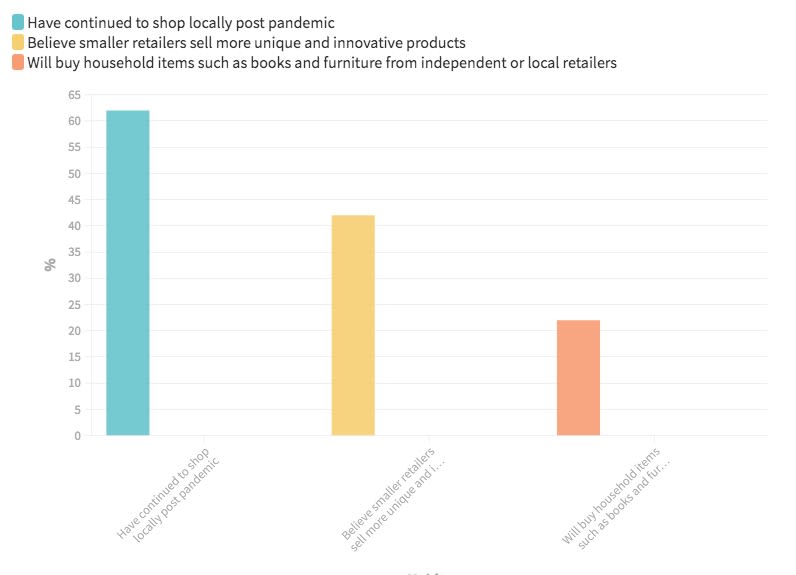
UK Consumer habits 2021. Source: UPS
UK Consumer habits 2021. Source: UPS
In 2021 UPS surveyed10,000 UK consumers on their shopping habits.
62% of people have continued to shop locally post pandemic.
Whilst 42% of people believe that smaller retailers sell more innovative and unique products.
According to Talking Retail, Londoners are the most likely to shop locally.
In 2020 Londoners spent £3.05 of every £10 with independent businesses near them.
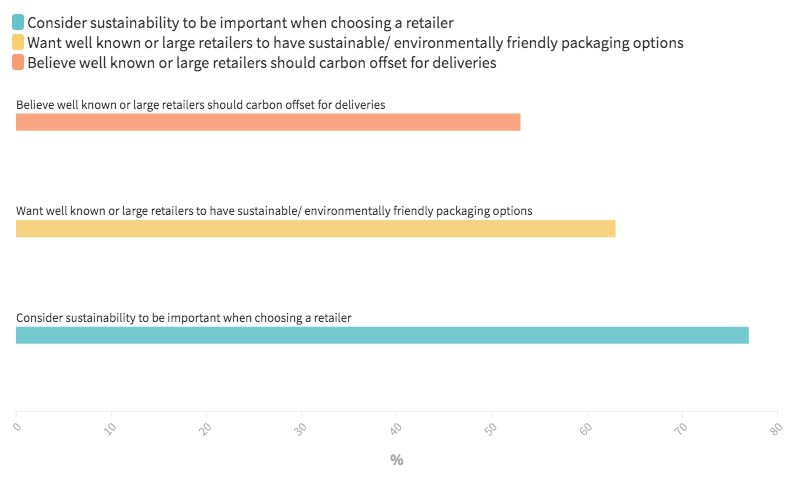
UK Consumers thoughts on shopping ethically. Source UPS
UK Consumers thoughts on shopping ethically. Source UPS
Consumer passion for sustainability has grown across the globe with people adjusting their shopping habits to become more eco - friendly.
The data shows that 77% of UK consumers consider sustainability to be important when choosing a retailer.
Whilst 63% of UK consumers want well known brands to have sustainable or environmentally friendly packaging and 53% believe large retailers should carbon offset for deliveries.
Shopping locally can help air pollution and cut carbon emissions as food miles are often reduced and helps support the local economy.
Independent brands are making massive strides when it comes to sustainability and innovation.
Rebecca said: "These smaller brands are able to be super agile and be really reactive whilst using innovative materials in their approaches.
"They can also adjust and pivot their businesses much quicker than a large corporation can.
"Therefore when someone like H&M focus on sustainability they’ll have for example a 10/20 year strategy.
"Whereas smaller businesses can essentially adjust their models a lot faster and make decisions that are better for the people and the planet quicker.
"There needs to be a more awareness in education especially for fast fashion shoppers on the damage that some of these mainstream corporations cause on the environment."
Local and independent brands are able to be more flexible, and adapt with sustainability by making changes quicker.
Mark said: "If you’re a smaller business you’re a bit more nimble on your feet.
"Its quite easy for us to make decisions on when to change things because we haven’t got a head office that we have to get approval from, even with large companies you have to go through a regional manager, area manager then up to head office before you can get something approved.
"Ultimately if someone comes to me with a bright idea I can say yes and it can be done by next week."
LDC work with a brand called Bottletop who create bags by using the bottle tops of cans.
Bottletop support workers across developing countries by paying employees 40% more in wages to help local societies.
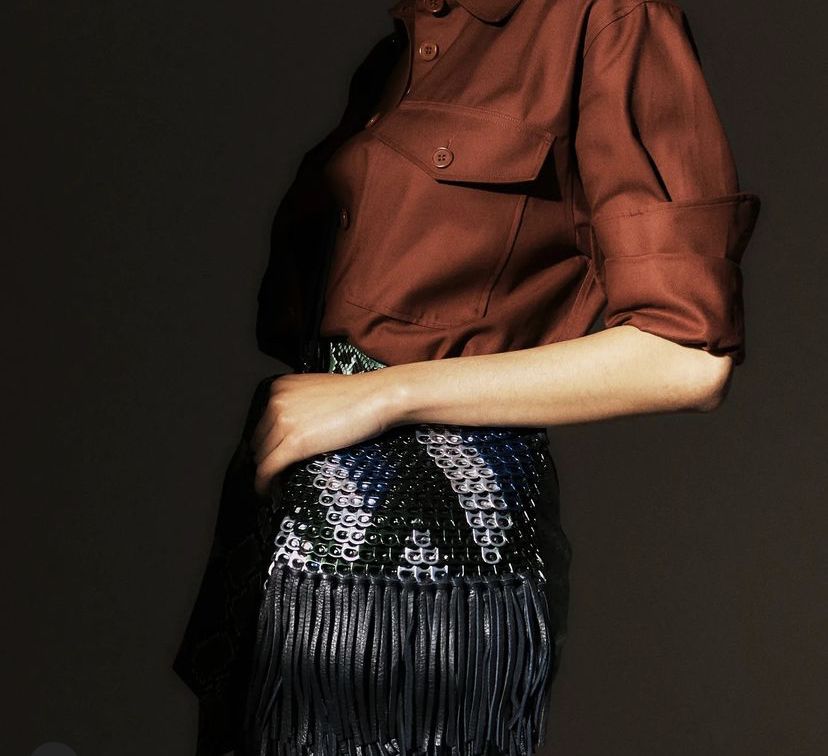
In a sustainable initiative The Good Wine Shop switched their diesel van of 13 years for a 100% electric van 18 months ago.
The company are currently trying to find a courier partner who is carbon neutral or are off setting what they are doing with the vans.

More than 8,700 chain stores disappeared for good in Great Britain during the first six months of 2021 according to PwC research.
However, independent retailers have stepped into the gaps left behind by chain stores.
According to the local data company a net total of 804 locally run stores opened in the first half of 2021.
Decline of Chain Stores
Decline of Chain Stores


